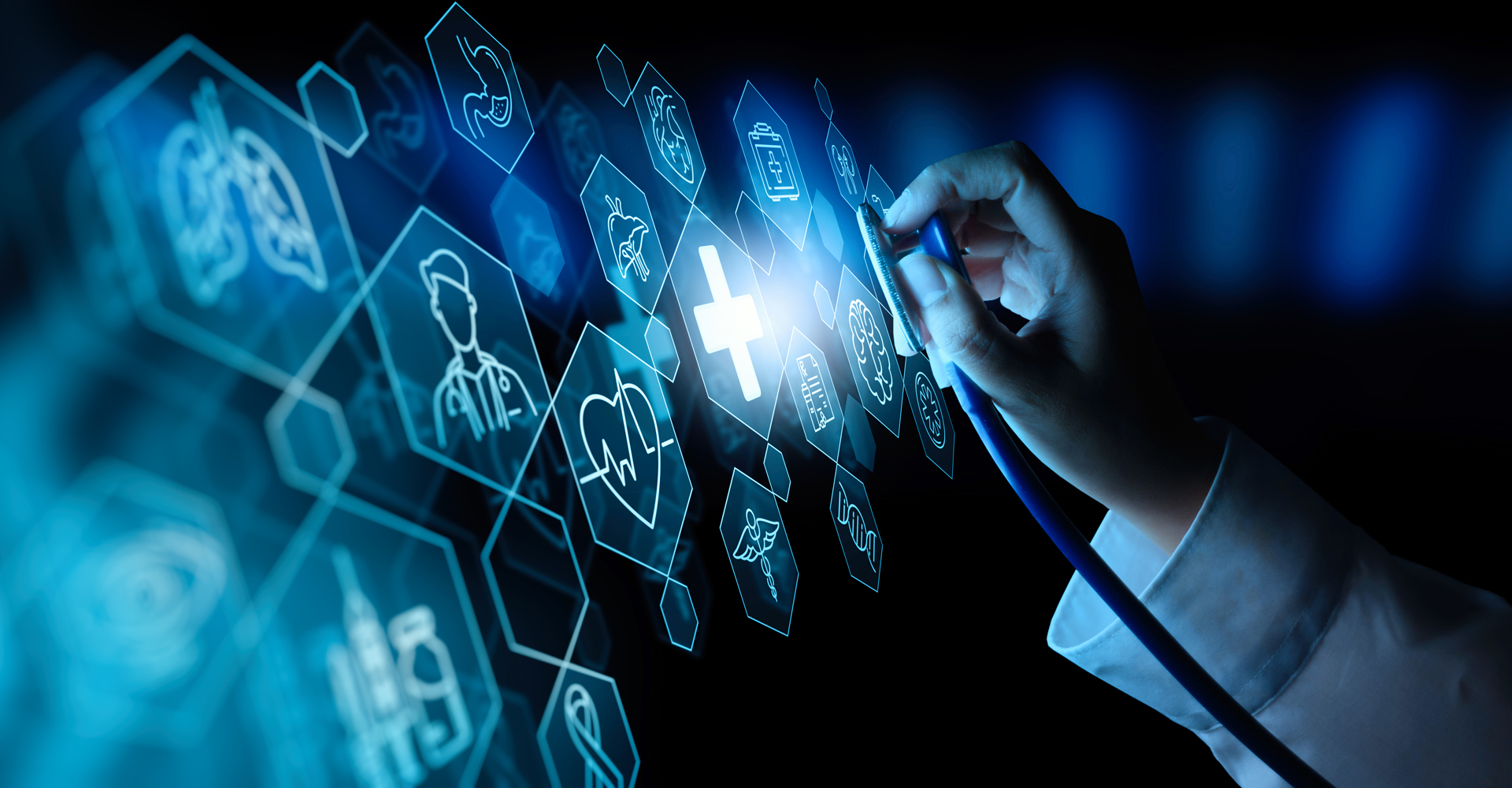The tools and devices of personalized health
The gadgetry of health is developing at rocket speed. There is a device for everything, no matter if you’re fitness geek with impeccable health or you suffer from a medical condition that needs monitoring. And all the devices are digitally empowered, collecting data, and communicating.
3 Minutes

A fitness tracker records daily burned calories, running distance, heart rate, sleep patterns and much more. If you’re the competitive type, you can even share your fitness data with your gym buddies, just for the fun of it.
If you’re a diabetic, you’d like to share your data as well, but for much more serious reasons. You’re wearing a sensor controlling your blood sugar level in real-time, enabling you to keep the level much steadier than without the sensor, reducing the strain on your organs, improving your health significantly. And when you’re going to your doctor for check-up, she can view the data and administer your treatment much more precisely than before.
Or, if you’re recovering from a stroke and doing the daily exercises required to get back into shape, your efforts can be monitored remotely by your physiotherapist, who can help you keep track of your progress and adjust your workout schedule according to your condition.
Made with the same blocks
This is the fascinating thing about these modern health gadgets: Although they cover an impressively broad scope of functionality, they all utilize the same technical advancements. It’s all about sensors, 24/7 monitoring, data collection and analysis, connectivity, and digital ecosystems. These are the basic building blocks for a new generation of tools and devices, empowering medical professionals, patients that suffer from various degrees of medical conditions, as well as perfectly healthy people.
As consumer wearables are converging with medical technology, health monitoring is becoming ubiquitous. From socks monitoring a baby’s heart rate to earbuds measuring your body temperature, insoles analyzing the way you walk, and glasses checking your brain activity – all these devices are creating new layers of data around people. And, due to the increasing digitalization of the health care sector, all these tools can feed their data into electronic health records, creating the potential for a much more fine-grained, data rich approach to medical treatment and prophylaxis.
The future of personalized health
We’re looking into the future of personalized health: A multitude of new healthcare technologies can fit treatment to your specific profile, for instance your genes, your lifestyle, your response to specific medications, and real-time monitoring data, allowing for a degree of customization never seen before.
Medtech: For more than a decade Akkodis has worked together with Laerdal Medical, a Norwegian manufacturer of medical equipment and medical training products. Laerdal produces lifelike manikins used for resuscitation training, emergency care and trauma. Akkodis experts have delivered various IoT solutions including wireless handheld controllers used to simulate training scenarios.
Wearables: Fluispotter is a wearable and fully automated blood sampling system, produced by Danish company Fluisense. It’s the only wearable blood sampler in the world and can collect and store up to 20 serial blood samples in 20 hours with minimal stress for the patient.
Consultants from Akkodis have developed the brush-less engine unit and blood circulation control in the catheter and valve that opens and closes for access to blood sampling. They have also developed and designed the user interface for programming the device.